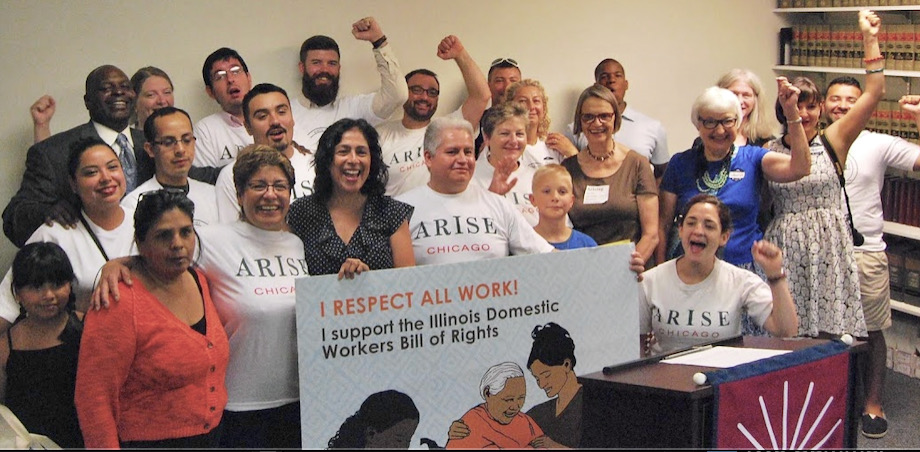Under a new rule for the City of Chicago that took effect Jan. 1, 2022, anyone who hires a domestic worker must provide them with a written contract in their primary language, as requested by the worker, regardless of their status as an employee or independent contractor. In Illinois, a domestic worker is someone who performs any of the following activities in any location:
- House cleaning
- Laundry
- Nanny services including childcare and child monitoring
- Cooking
- Caregiving
- Companion services
- Chauffeuring
- Other household services
The contract must include the wage and the work schedule agreed upon by the employer and the domestic worker. This mandate ensures accountability, transparency, and predictability for domestic workers so they can plan for themselves and their families.
The mandate is a pillar of Mayor Lori Lightfoot’s anti-poverty agenda and serves as a call to action to employers of care workers to commit to four actions: 1) pay a fair, living wage; 2) provide paid time off; 3) have written expectations that are clear and mutually agreed upon; and 4) maintain safe workplaces.
“Contracts are an important step contributing to changes and improvements for domestic workers and raising awareness of employers,” said Beatriz Tlalolini, a nanny and member of Arise Chicago. “A contract lists out responsibilities and obligations in writing for both the employer and the worker and provides the option to renegotiate and modify the agreement according to any changes or needs for either the employer or employee.”
The city set forth these guidelines help to develop good work agreements:
- An environment of collaboration and dialogue should be created to ensure that the terms of the work agreement are mutually agreeable.
- Employees should have the opportunity to review and weigh in on the terms of the work agreement before it is signed. This includes providing the employee with ample time for review.
- The work agreement should be available and reviewable in a language in which the worker is fluent in order for it to be enforceable.
- Work agreements should be reviewed and signed in person, rather than over the phone.
- Completed work agreements should include the signature of the worker, employer and a witness.
- The agreements may not contain mandatory pre-dispute arbitration clauses for employee claims of their legal rights, non-compete agreements, or non-disparagement agreements limiting the ability of domestic workers to seek domestic work post-employment.
Contracts should be reviewed annually and when there is a change to the job description or scope of work (e.g. a birth of another child, additional household chores/tasks).
Domestic workers in Chicago have additional job protections including the right to paid sick days. All Chicago worker protections are enforced by the Chicago Office of Labor Protections. To be sure you are in compliance with the laws, check out the city dashboard for household employers.










